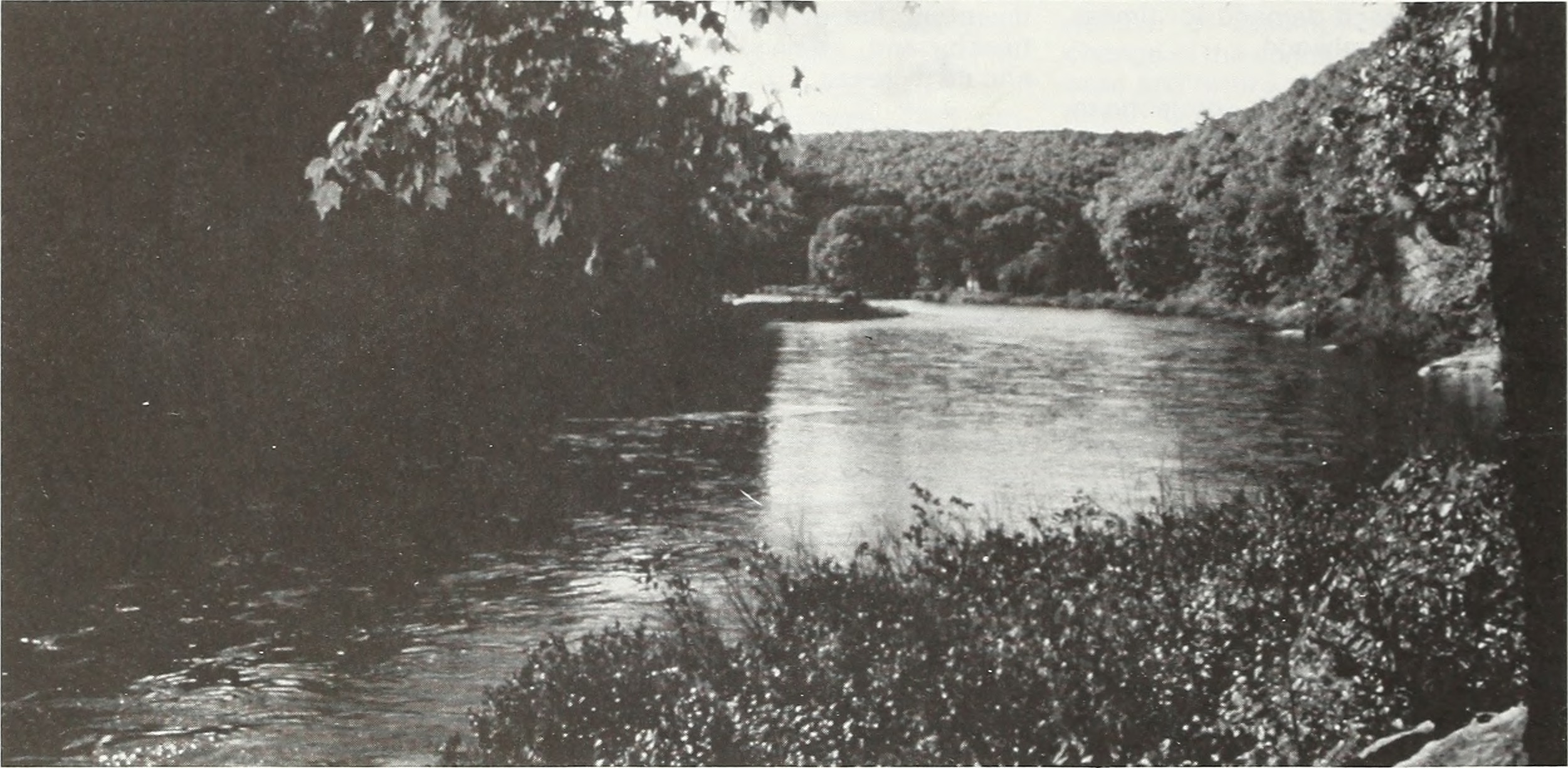
Reflections From Our Director On The Carmack Collective’s Inaugural Core Grantmaking Cycle
On January 15, 2023 The Carmack Collective launched our inaugural round of Core Grantmaking. This included an open application call for our $10,000 one year Exploratory Grants as well as our first round of three year Multi-Year Grants, ranging from $10,000-$75,000. Our first round of Multi-Year grants were all existing grantees from my (Jessie’s) historic independent funding that were grandfathered into The Carmack Collective as an important step in the transition from individual funder to a more accountable and participatory fund. We received over 500 submissions to our Exploratory Grant call, and we were ultimately able to make 15 Exploratory Grants along with 12 Multi-Year Grants, totaling $515,000. All of our Core Grants were collectively approved by our Advisory Board, made up of 5 movement leaders. You can see our full list of grantees here.
Application Process
As I outlined in an open letter published during our launch, we view minimal application and reporting requirements as a baseline practice for trust based philanthropy. This came to life in our Exploratory Grant application form (hosted on our website), which required applicants to only submit basic contact information, non-profit status, budget, IRS form 990, and provided an open-ended opportunity to share any additional materials. We were explicit on the application that we would review publicly available materials on the organization’s website and that we were very happy to accept materials (budgets, proposals, etc.) that had previously been prepared for other funders in order to alleviate the burden of developing unique grant materials for our review. We received positive feedback on the application format, but also have a number of learnings that we will use to improve future rounds. These include offering the application in multiple languages, evolving our backend review process to better respond to the volume of applications we received, and continuing to explore how we can share unfunded applications with peers across our networks.
Key Themes
As a new fund, we have taken an intentionally exploratory approach to our first year of grantmaking. One of the primary outcomes for us has been honing in on our strategic approach to this work. In this first year of grantmaking, we funded across four issue areas – climate justice, movement building, culture change, and philanthropic agitation. As we complete this first round of grantmaking and reflect on our approach, it is becoming clearer to us what our role is as a funder and we will shift our approach going forward. The Carmack Collective will evolve its strategy, in a nuanced way, to center global intersectional climate justice as our north star with a priority focus on three tactics – movement building, culture change, and philanthropic agitation. These shifts come as the result of learning and feedback we have received from our application and grantmaking processes, directly informed by those doing this work on the frontlines.The evolution from issue areas to a focus on tactics will allow for us to have a more targeted strategic impact. Within that framework, some additional themes have emerged.
- Geographically, we are prioritizing direct funding in the US, Latin America & Puerto Rico, and West Africa, in addition to the incredible work of our global intermediary grantee partners. These geographies reflect our view that it is essential to hold the largest historic Global North polluters accountable while also standing in solidarity with those in the Global South, and that we always want to center areas hit first and worst by the climate crisis, domestically or globally. Per our grantees’ self-reporting, almost 40% of Carmack’s 2023 Core Grantees are Global South-led, which we’ve defined as at least 50% of the board of directors identifying as from the Global South and either the executive director or 50% of senior leadership (decision-makers) identifying as from the Global South.
- Demographically, we have also prioritized grantees that are Black, Indigenous, or People of Color-led (BIPOC), non-cis male-led, and frontline-led, as we know that these are the communities who are closest to the crises we face while also being systemically underfunded. Per our grantees’ self-reporting, of Carmack’s 2023 Core Grantees, almost 60% are BIPOC-led, almost 70% are non-cis male-led, and over 50% are frontline-led. Again, we defined “led” as at least 50% of the board of directors and either the executive director or 50% of senior leadership (decision-makers) identifying as BIPOC/non-cis male/frontline, however we are reevaluating if this definition is the best framing to understand how we can meaningfully redistribute money and power.
- Flexible funding is a key component of our grantmaking strategy. Our funds are housed as an impact invested Donor Advised Fund (DAF) at the Tides Foundation, which means that we are limited to funding 501(c)3 organizations, fiscally sponsored projects, or 501(c)3 equivalent organizations based outside of the US. Direct funding of global organizations is a priority for us, so Tides has supported us (with all fees covered by The Carmack Collective, not the grantee) in processing all of our non 501(c)3 global grants using Expenditure Responsibility. This process allows international organizations who are doing work that is equivalent to that of a US 501(c)3, but are not registered as such in the US, to receive tax deductible dollars upon due diligence and basic IRS mandated reporting. For example, we made Exploratory Grants to Latin American and West African based organizations such as Accion Ecologica and Health of Mother Earth Foundation (HOMEF). We are excited to continue to explore how we can most strategically move money to movements.
- We have also begun to think about how The Carmack Collective can provide catalytic funding to smaller and emergent organizations, particularly those who are struggling to secure philanthropic support due to their positionality (i.e. Global South-led, youth-led, etc.). During our 2023 Core Grants round we quantified this metric by identifying the percentage of our grantees with an annual budget under $500k – ~25% of our Exploratory Grants. We are continuing to explore if this is the most effective way to measure catalytic impact, as well as working to identify the right balance between this catalytic funding and the longer term support of maturing organizations which we know to be important to building a powerful movement.
Movement Building
With our first round of Core Grants, we prioritized organizations who are actively working to grow the climate justice movement. For all of our grantees, this involves some mix of basebuilding, direct action, leadership development, community care, and network weaving. A few more specific ways that our grantees are building movement are:
- Leveraging coalitions to build movement infrastructure – The behind the scenes work of strengthening and growing movements through building coalitions, and all the relational and organizational work that comes with it, can be slower and less sexy than moments of direct action, but it is critical to a powerful movement. For example, this is evidenced in the coalitional work of our grantee Extreme Energy Extraction Collaborative who will bring together organizers on the frontlines of stopping energy extraction across the US at their upcoming summit this fall to strategize and learn across disparate, yet related fights. Similarly, we see the power of coalition at play in the way our grantee the Global Campaign to Demand Climate Justice leverages the power of the people to unite behind shared climate justice demands and make these demands heard in global treaty making spaces, such as the upcoming COP28, that are designed to exclude.
- Demographically, we have also prioritized grantees that are Black, Indigenous, or People of Color-led (BIPOC), non-cis male-led, and frontline-led, as we know that these are the communities who are closest to the crises we face while also being systemically underfunded. Per our grantees’ self-reporting, of Carmack’s 2023 Core Grantees, almost 60% are BIPOC-led, almost 70% are non-cis male-led, and over 50% are frontline-led. Again, we defined “led” as at least 50% of the board of directors and either the executive director or 50% of senior leadership (decision-makers) identifying as BIPOC/non-cis male/frontline, however we are reevaluating if this definition is the best framing to understand how we can meaningfully redistribute money and power.
- Supporting the wellbeing of activists – The strength of our movements relies on the individuals who make up the movement. In a moment of increasing burnout, economic instability, and criminalization of protest, we need to center the physical and mental wellness of activists and organizers (paid or unpaid). Our grantee, Climate Activist Defenders, does this by providing individual emergency support to climate activists at risk due to their activism. It is also worth noting that we view this as an important part of our work as a funder partner. It is one of the reasons we provide primarily general operating grants that can be used to pay staff salaries and other needed expenses, and we are actively working with grantees to identify other ways we can back them as organizations and people.
- Embracing overlaps between climate and other fights for social justice – The fight for climate justice cannot be won in a silo, and we are excited that the work of many of our grantees touches different intersecting issue areas. For example, our grantee Green Workers Alliance, who organizes frontline renewable energy workers to fight for better industry conditions, is uniting the labor and climate movements to demonstrate what a just transition can and must look like. Another example is our grantee Native Movement, whose work links Indigenous peoples’ rights and the rights of Mother Earth.
Culture Change
We view culture change to mean reshaping the hegemonic narrative structures that undergird our society, or at least to cause people to begin to question those narratives. This is critical because we realize that shifts in culture often precede shifts in policy and political reality. In this first cohort of grantees we have leaned most heavily into organizations developing popular education content and disseminating it in different ways. Two of those ways are:
- Interactive Experiences – For example, one of our grantees Cine Solar Rodante is a mobile solar powered cinema that travels throughout Puerto Rico hosting pop-up screenings of decolonial documentaries, engaging citizens in the ensuing conversations, all while also providing attendees with a tangible example of the ease and efficacy of solar power. Another one of our grantees, The Natural History Museum, takes the more traditional concept of the museum and flips it on its head by creating shows and events that challenge the tellings of our collective history offered by many mainstream museums.
- Comedy – I will be the first to admit that comedy might not be the tactic that comes most immediately to mind when grappling with existential crises of climate and wealth injustice, but increasingly studies show that comedy can be one of the most effective ways to engage people on the issue of climate justice. One of our grantees, GoodLaugh, is a leader in using comedy to advance climate justice, as well as other social justice issues. For example, they recently launched the second round of their successful Climate Comedy Cohort, which brings together up and coming comics and climate experts, who give them a crash course in the latest climate science and policy. The program then deploys the comics to create unique, informative, and hilarious live and digital content to take on the road or pitch to networks, where it will reach people across the US.
Philanthropic Agitation
Like the previous two tactics, philanthropic agitation is a call to action for us at The Carmack Collective, as well as a focus of our funding. We see this tactic as an essential way for us to meaningfully work to connect frontline climate justice movements with funders and philanthropy. We also, of course, want to move resources to organizations growing this work. We have done that via this Core Grants cohort in two key ways:
- Supporting donor organizing – We view donor organizing as bringing peers along on the journey to meaningfully redistribute wealth and power, and we are excited to support two critical networks who are leading this work – Resource Generation, who organizes young people in the richest top 10% of individuals or families in the US, and Women Donors Network, who organizes women in the US to leverage their wealth and power for a more just world. Critically, both of these organizations offer political education and opportunities for internal leadership to continue to develop their members as donor organizers in their own right.
- Supporting regranting funds who are doing things differently – The status quo in philanthropy continues to center the donor rather than those on the frontlines of movements, which is at best ineffective. We are excited to support a number of regranting funds who are demonstrating the impact of radical power sharing through participatory grantmaking. Two of these grantees are Native Voices Rising, who works to combat the systemic lack of philanthropic investment in Native organizing and advocacy through grants made by a Native-led decision making body, and the Emergent Fund, a rapid response fund for movement leaders led by movement leaders.
Questions We’re Asking
In the spirit of transparency and philanthropic agitation, I would like to wrap up this reflection by naming some of the questions we continue to hold around our strategy. Within philanthropy and movements, like so many other fields, there is a tendency towards projecting constant certainty and perpetual success, when we all know that is not the reality of complicated, multi-generational work. We hope this can serve as a call for anyone reading this to consider if they are holding these same questions, additional questions, or maybe have some answers to share. We would love to hear from you and continue to build this movement together.
- What is the right strategic mix of local, state, regional, national, and international grantees?
- What is the right mix of emergent and mature organizations, particularly those with whom we have existing relationships but have grown their scope and budget over time?
- What is the right balance of funding work that “stops the bad” versus “builds the good?”
- How can we continue to meaningfully grapple with the inherent contradictions of working to make change through philanthropy, a flawed and inequitable system?
- What is the timeline to spend down the assets of The Carmack Collective? We were not created to operate in perpetuity, but we want to be strategic and intentional about our lifespan.
- How do we best align our invested funds with our mission?
Next Steps
- The Carmack Collective is currently in the midst of the Advisory Board led Flow Fund grantmaking cycle. You can read more about that process here. We are embracing the above learnings and reflections, and we look forward to announcing the selected Flow Fund grantees in Fall 2023.
- Members of our team will also be at a number of conferences and events this fall, including NYC Climate Week, the Environmental Grantmakers Association Fall Retreat, and the EDGE Funders Alliance Annual Conference. We are very much looking forward to connecting with and learning from allies across the movement in these spaces.
More Updates

Launch Letter from the Director
I’m writing this in December of 2022, just as The Carmack Collective is about to launch. To best explain the genesis of this project and what we hope to accomplish, I want to first tell you a bit about myself.

2023 Flow Fund Grantees
The Carmack Collective 2023 Flow Fund has moved $235,000 to Climate Justice movements working across our priority tactics of movement building, culture change, and philanthropic agitation. This round of grants closes out The Carmack Collective’s first year of grantmaking.

2023 Core Grantees
The Carmack Collective is excited to announce our 2023 Core Grantees. This $515,000 round of grants is our first since launching in January 2023. Our Core Grants program consists of Exploratory Grants and Multi-Year Grants.